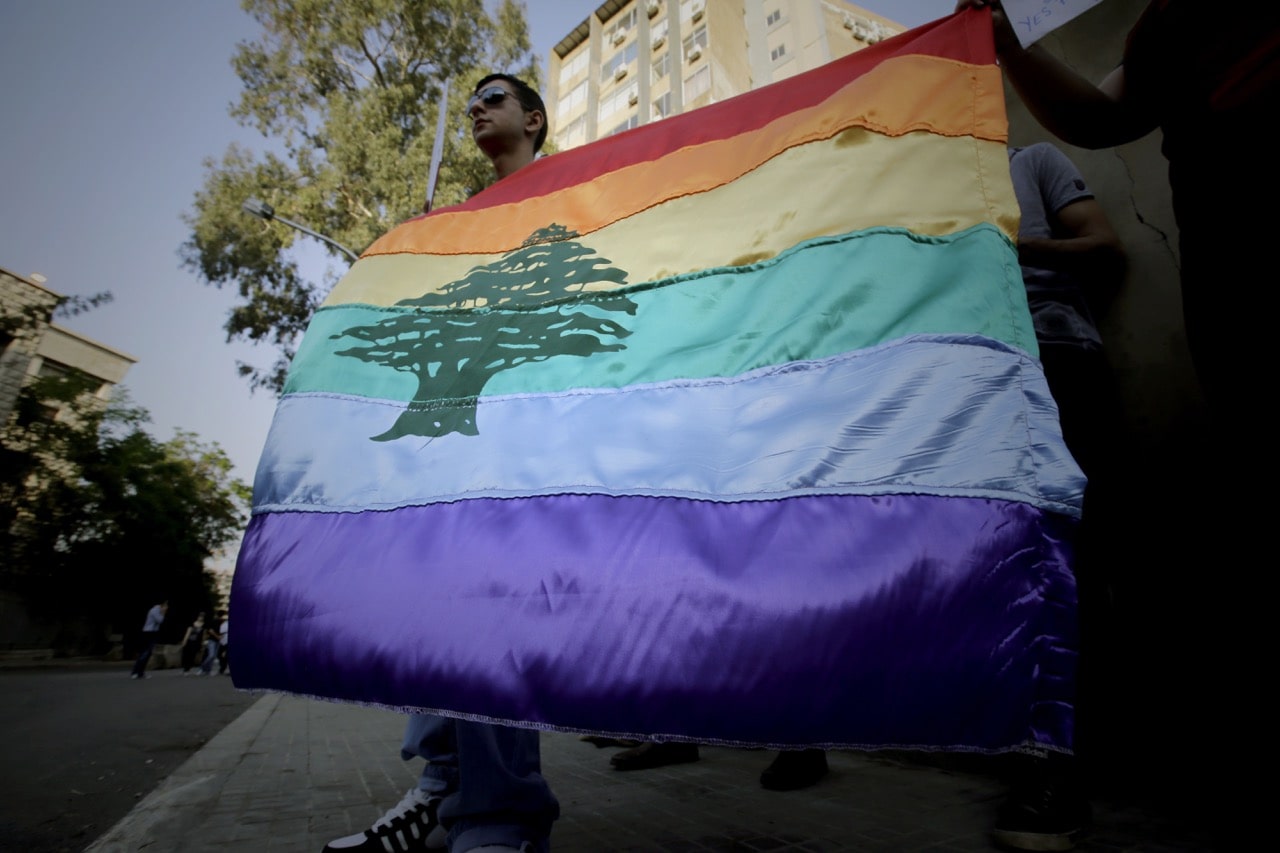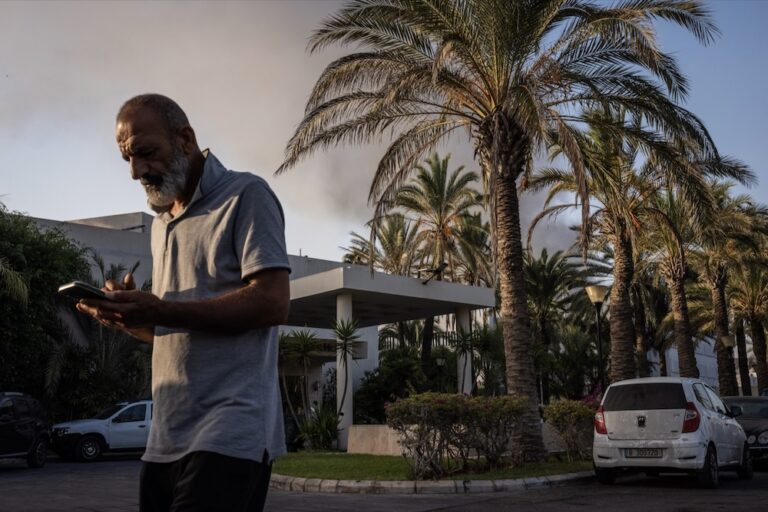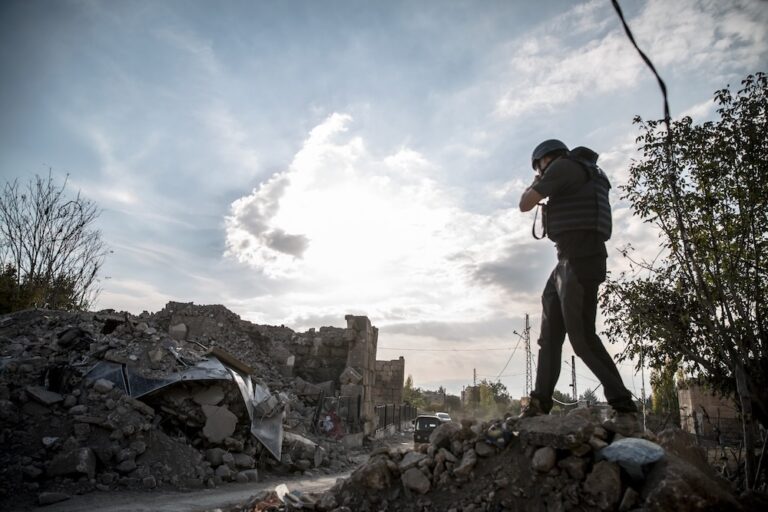"General Security's latest efforts to shut down an LGBT conference in Lebanon is an attack on freedom of assembly rights and an attempt to silence the voices of courageous activists," said HRW.
This statement was originally published on hrw.org on 4 October 2018.
Lebanese General Security officers unlawfully attempted to shut down a conference on the rights of lesbian, gay, bisexual, and transgender (LGBT) people on September 29, 2018, Human Rights Watch said today. Human Rights Watch staff members were among the participants at NEDWA, a conference organized by the Arab Foundation for Freedoms and Equality (AFE), a group that works to advance LGBT and other human rights,
General Security is an intelligence branch of Lebanese security forces and is the agency that oversees the entry and exit of foreigners into the country.
Late on the conference’s third day, officers from General Security, arrived at the hotel where the conference was being held and questioned AFE executive director Georges Azzi, directing him to cancel the conference and sign a pledge to cease any activities related to the conference. When Azzi refused, the officers ordered the hotel to shut down the conference.
General Security officers also took details of all conference participants from the hotel registry, including those from highly repressive countries such as Egypt, where, in 2017, police arrested over 100 people for being gay or transgender, and Iraq, where armed groups have murdered LGBT people with impunity. AFE, which is an officially registered nongovernmental organization, moved the conference to a different hotel for its final day.
“General Security’s latest efforts to shut down an LGBT conference in Lebanon is an attack on freedom of assembly rights and an attempt to silence the voices of courageous activists,” said Lama Fakih, deputy Middle East and North Africa director at Human Rights Watch. “Trying to intimidate NEDWA organizers and activists working in challenging circumstances throughout the Middle East and North Africa violates Lebanon’s obligations under international law.”
The four-day conference, which included workshops on issues such as human rights, advocacy, movement-building, health, and the arts, has taken place annually in Beirut since 2013 and includes people of diverse sexual orientations and gender identities.
The General Security Forces’ reasons for trying to shut down the conference are unclear, but they followed public statements from the Muslim Scholars Association accusing NEDWA organizers of promoting homosexuality and drug abuse. The Muslim Scholars Association called for the organizers’ arrest and the cancellation of the conference on the grounds of “incitement to immorality.”
The General Security Forces have a responsibility to protect everyone’s rights, not to act on the basis of spurious and unfounded allegations, Human Rights Watch said.
Lebanese government interference has previously put a stop to human rights events around gender and sexuality in the name of “preserving public morality.” On May 14, the Internal Security Forces, detained a prominent LGBT rights activist and pressured him to cancel some events associated with Beirut Pride. In August 2017, General Security Forces ordered a hotel to cancel a human rights workshop organized by AFE.
Government disruptions of peaceful human rights activities violate the rights to non-discrimination and freedom of assembly, expression, and association in a country that has witnessed progress in the courts toward respecting the rights of LGBT people. In July, a district court of appeal issued a groundbreaking ruling that same-sex conduct is not unlawful, dismissing charges under article 534 of the Penal Code, which criminalizes “any sexual intercourse contrary to the order of nature” and provides for sentence of up to one year in prison. The appeals court judge denounced the law’s discriminatory intrusion in people’s private lives and declared that homosexuality is not “unnatural.”
The Lebanese government should take immediate steps toward repealing laws that criminalize consensual adult sexual conduct, Human Rights Watch said. While these laws are being reviewed, the minister of interior, public prosecutor and the general director of General Security Forces should ensure that groups can organize around LGBT rights without official interference and intimidation.
“The crackdown on a conference of LGBT rights activists is a step backward that threatens activists not just in Lebanon but throughout the Middle East and North Africa,” Fakih said. “In a region where dozens have been killed and hundreds arrested due to their sexual orientation or gender identity, the Lebanese authorities should be assisting, not preventing, activists from working together toward regional solutions.”



